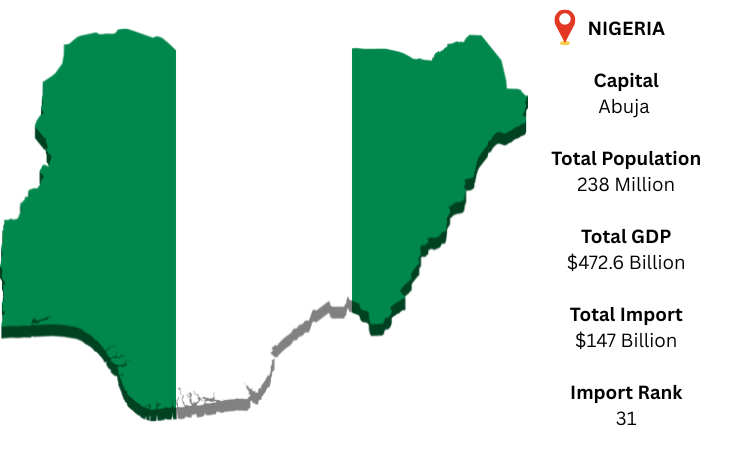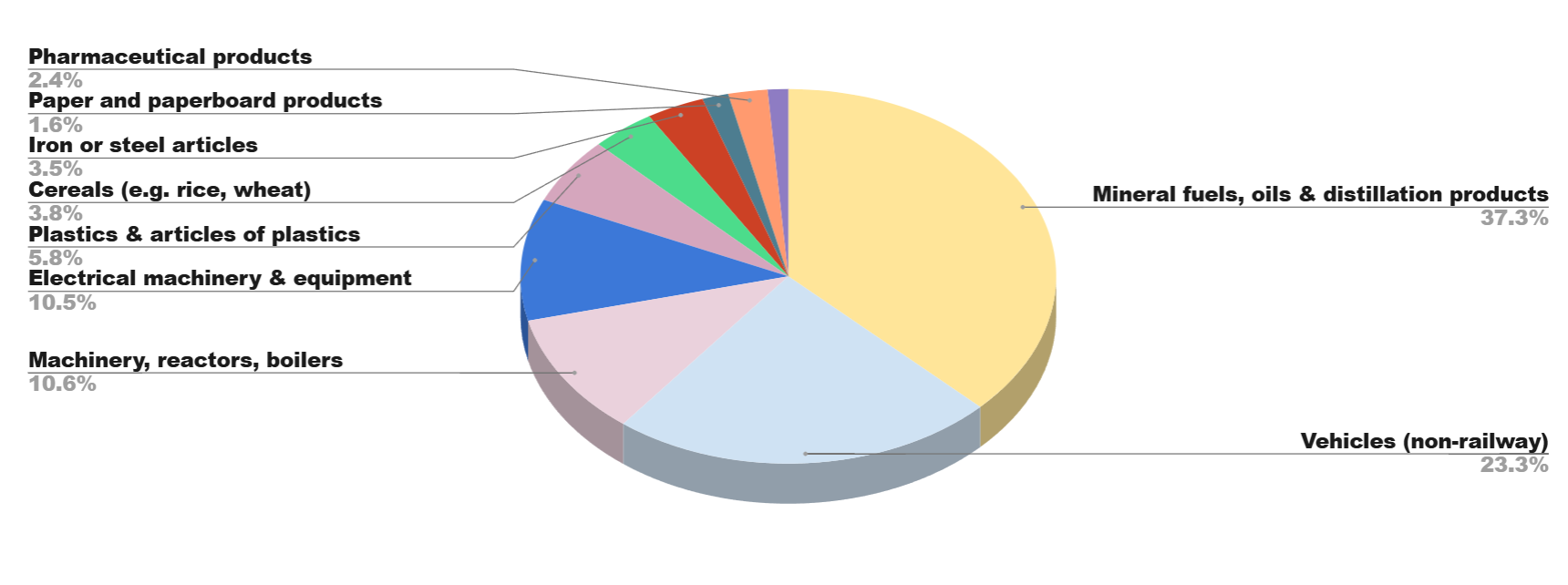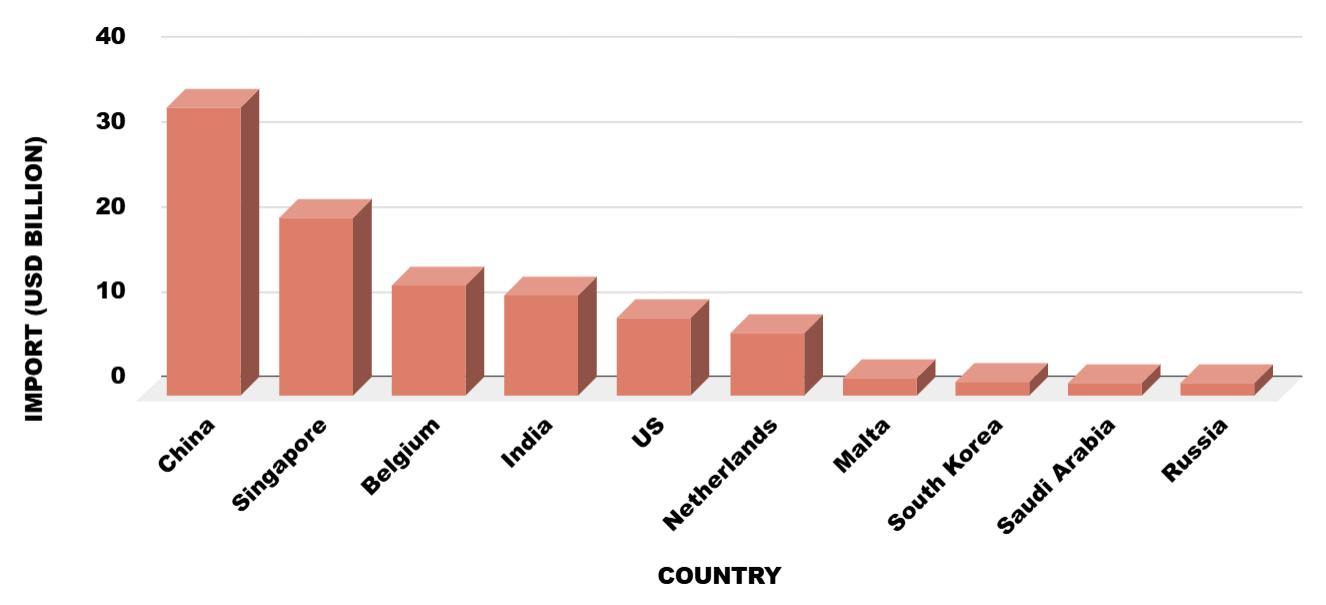Nigeria, a country in West Africa, has coasts along the Atlantic Ocean and borders Benin, Niger, Chad, and Cameroon. Abuja is its major city and capital. As per the Nigeria import data, Nigeria's GDP was around USD 1.49 trillion in 2024. In 2024, the country's import volume reached a record high of over USD 147 billion (₦60.6 trillion), placing it in 31st place globally. With about 23–28% of Nigeria's imports (about USD 34 billion), China was the country's largest exporter.
According to Nigeria customs import data, together, cars (HS87) and mineral fuels & oils (HS27) accounted for more than half of Nigeria's total imports in 2024. Nigeria’s most imported products in 2024 were mineral fuels & oils (HS 27) and vehicles (HS 87), together representing over half of total imports.



